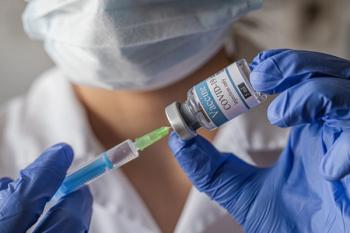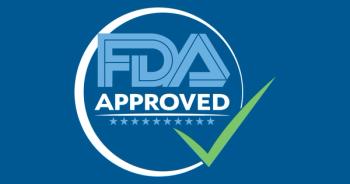
Results from a cross-sectional study find large proportions of obesity-related conditions in US youth are attributable to obesity and, to a lesser extent, overweight.

Results from a cross-sectional study find large proportions of obesity-related conditions in US youth are attributable to obesity and, to a lesser extent, overweight.

Pediatricians play a crucial role in preventing early-onset colorectal cancer by promoting healthy diets and fiber intake among children.

FDA approves updated COVID-19 vaccines for 2025-2026 but limits pediatric access, restricting use to older and high-risk groups.

A recent study found child depression predicted later maternal depression, highlighting the need for family-centered care.

Donna Hallas, PhD, PPCNP-BC, CPNP, PMHS, FAANP, FAAN, shares her thoughts on the role PNPs play in vaccine education for parents and caregivers.

Can you guess the diagnosis?

A Rutgers-led study found genetics, personality traits, and environment uniquely shape early adolescent alcohol use, guiding prevention efforts.

Less than half of US adolescents with major depressive episode received treatment in 2022, with disparities by race, gender, and geography.

Discover effective strategies for conducting psychosocial screenings in adolescents using the HEADS FIRST Checklist to enhance health outcomes.

Large Korean study finds no link between prenatal or infant antibiotic exposure and autoimmune disease risk in children.

Michael Haller, MD, tell providers they shouldn't be surprised if more children with T1D use inhaled insulin.

Music therapy offers potential benefits for children with neurodisability, enhancing rehabilitation through creative methods and interprofessional collaboration.

Higher omega-3 intake may protect children from myopia, while diets high in saturated fats may raise risk, study finds.

Immune surveillance study shows pandemic interventions suppressed viral exposure in children, driving post-COVID resurgence and future outbreak risk.

Get caught up with Contemporary Pediatrics! This list helps you navigate our top stories from the week, all in one place.

In recent studies, donidalorsen (Dawnzera) has demonstrated durable efficacy and long-term disease control.

Tacrolimus shows promise in treating juvenile myasthenia gravis, improving symptoms with minimal adverse effects, suggesting a valuable second-line therapy option.

Low-dose methylprednisolone is as effective as high-dose for severe pediatric MPP and has fewer side effects, supporting safer treatment strategies.

Controlling childhood EoE inflammation improves esophageal flexibility, reduces dysphagia risk, and may predict need for stricture dilation.

Young females with congenital heart disease face barriers to contraception, increasing their risk during pregnancy despite rising usage over time.

High-dose centanafadine significantly improved ADHD symptoms in children aged 6 to 12 years and was well tolerated, according to findings from a phase 3 clinical trial.

Biennial HPV testing and higher vaccination rates could help South Korea eliminate cervical cancer up to a decade earlier than current policy.

AAP updates guidance on recognizing and managing iatrogenic opioid dependence and withdrawal in children prescribed opioids.

The baby had mild respiratory distress after delivery and briefly required supplemental blow-by oxygen during transitioning.

Investigators noted the association was partially mediated by prepubertal adiposity.

If approved, vatiquinone would have been the first therapy approved for pediatric patients with FA.

The AAP recommends that all children aged 6 months to 23 months receive a COVID-19 vaccine, as this group has the highest risk for severe infection.

What's the diagnosis?

The AAP stated public health and trauma care should address "needs of injured children across the continuum of care."

Michael Haller, MD, discusses inhaled insulin’s safety, off-label use, and future role in easing type 1 diabetes management for children.